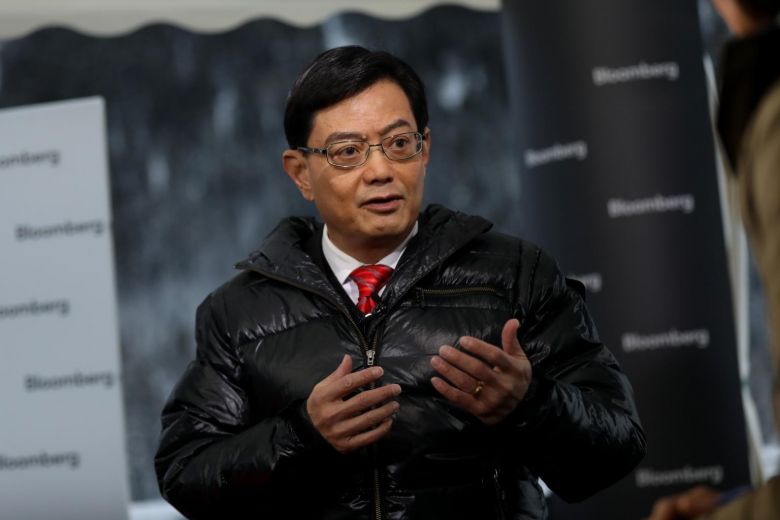Very negative global impact if no US-China deal: Singapore Finance Minister

Finance Minister Heng Swee Keat said the trade tensions are prompting changes in how goods are manufactured and traded.PHOTO: BLOOMBERG
DAVOS, Jan 22, 2019, Bloomberg. It’s vital that the US and China settle their trade differences to avoid damaging growth elsewhere in the world, Singapore’s Finance Minister Heng Swee Keat said, reported The Straits Times.
“It’s important for both sides to try and cut a deal because the impact on the global economy of any trade friction is going to be very negative,” Mr Heng said in an interview with Bloomberg Television’s Haslinda Amin on the sidelines of the World Economic Forum meetings in Davos.
The world’s top policy makers and executives gather this week in Davos with the global economy at a turning point: the upending of trade frameworks and a cyclical slowdown in demand have prompted widespread downgrades of global growth.
Another came on Monday (Jan 21) from the International Monetary Fund, though it left growth forecasts for the US and China untouched.
Singapore is one of the most export-reliant nations in the world, and US-China trade tensions and a slowing global economy are particularly worrying for the authorities in the city state.
Economic growth held above 3 per cent for a second year in 2018, and Prime Minister Lee Hsien Loong expects an expansion of 1.5 per cent to 3.5 per cent in 2019, with “major uncertainties” in the global economy and nervous financial markets weighing on the outlook.
Mr Heng, 57, is widely viewed as the de facto successor to Mr Lee after being named the first assistant secretary-general of Singapore’s ruling political party in November. PM Lee has signalled that elections could be called as early as this year.
Mr Heng said the trade tensions are prompting changes in how goods are manufactured and traded.
“In the short run, many companies are really scrambling to look at how they can restructure the supply chain to make it a little more more resilient,” he said.
He also warned that trade stress is likely to persist.
“There will continue to be many sources of friction,” Mr Heng said. “This is going to be a fairly medium- to long-term issue. There will be sources of disagreement on how things have to be done and how competition is to be conducted.”